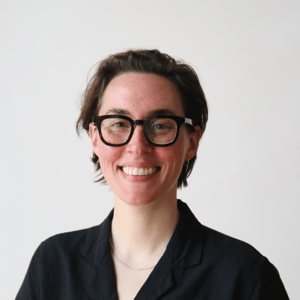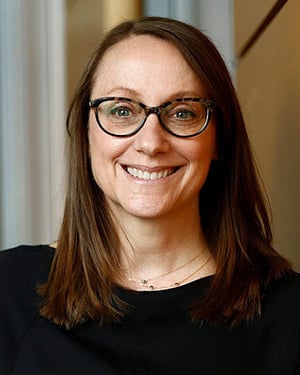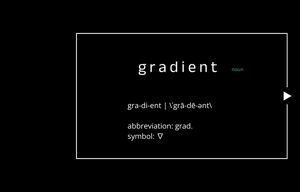
We demystify data to help organizations make better decisions.
- Mission
- Vision
- Our Unique Value Proposition
Whether you’re a B2C brand, an agency, a philanthropy, or an organization that defies those bounds, every Gradient partnership begins with a bespoke, consultative research program developed to achieve your organization’s growth goals—even those you can’t yet articulate. Every Gradient partnership results in peace of mind and strategic confidence. How do we do this?
Once you partner with us, Gradient uncovers the drivers, preferences, and opinions of your brand or organization’s audience using bespoke statistical methodologies. Equipped with this evidence, we help you derive the objective clarity you need to solve your biggest strategy questions—like how to understand your audience or corner your market.
Gradient is not a SaaS product or an off-the-shelf solution. We aren’t a traditional research firm, producing the same reams of spreadsheets for every client. Gradient is a dedicated team of social and data scientists seeking continuous improvement for our methodologies, our processes, and for your organization. We integrate into your business, share your goals, and can’t wait to champion your successes. Gradient is your decision science research partner.
Gradient by the numbers:
The people behind the numbers
- Management
- Research
- Data Science
- Operations
- Advisors





Eva holds a PhD in comparative politics from Brown University, where she used international survey methods and causal inference to study how certain identities shape political attitudes and behaviors. She brings that background into client work by guiding projects toward strong, evidence-driven conclusions.







What's in a name?
the rate of change with respect to distance of a variable quantity, as temperature or pressure, in the direction of maximum change.
2
a curve representing such a rate of change.
3
a differential operator that, operating upon a function of several variables, results in a vector the coordinates of which are the partial derivatives of the function.

The Gradient History
2016
The genesis of Gradient
Gradient was founded on January 2nd, 2016 by Tom Vladeck—fresh off a Wharton professor’s tip to skip end-of-year tax headaches. As soon as the New Year’s Eve confetti settled, Tom filed the paperwork to form a New York LLC, and within a few weeks, the company was officially up and running.
From the start, our mission has been twofold:
- Help organizations of all sizes make better decisions through data and advanced analytics, and
- Create a place where brilliant technical minds can do their best work.
2018
A global company was born
In early 2018, the business was doing well, and Tom realized he needed more help. He knew that talent wasn't confined to the US borders and he only wanted to hire the best of the best.
So before it was cool, a remote company was born, and co-founders Kyle Block and Stefan Musch joined Gradient's mission.
2019
The first reunion
As a global and remote company, it's essential to get together in real life once in a while. In 2019 we decided it was time to spin up a new tradition: yearly reunions.
Every year we get together with the full team, somewhere in the world. In 2019, it was in the Big Apple itself. Since then, we've been to Paris, Colorado, Playa Del Carmen, Vancouver, Kenya and The Berkshires.
Fun fact: We choose our destination by evoking trade-offs through an internal MaxDiff experiment. 2022
The covid growth
While the world stood still during Covid, Gradient moved forward. The uncertainty that rattled industries became a catalyst for our growth, because helping organizations make sense of ambiguity is exactly what we do best.
As demand surged for clarity and unambigious direction, we stepped up. What began as a nimble start-up matured into a premier research partner, trusted by global brands, agencies, and institutions to bring clarity when it’s needed most.
2023
The recast pivot
Together with Micheal Kaminsky, Tom saw too much MMM snake-oil being sold and wanted to do something about it. Together with some of the world’s top statisticians, he's building a comprehensive measurement platform that helps modern marketers make better decisions.
You can learn more about their mission over at www.getrecast.com
2025
A new era of leadership
After Tom set off to build Recast, Gradient turned the page. That’s when Kyle and Stefan stepped in, bringing fresh energy and a new lens on what Gradient should stand for.
Rather than chasing the title of “best statistical market research firm in the world,” they’re steering Gradient toward something deeper: uncovering the hidden truths and realities that drive people, markets, and movements, and doing so with the most advanced statistical tools available.
Blending Kyle’s talent for building bold, collaborative social research teams with Stefan’s deep expertise in analytics and modeling, Gradient stays rooted in curiosity and analytical rigor—delivering insights that truly inform decisions,.
Our headquarters
Gradient is proudly headquartered in both New York and Amsterdam, two cities known for bold ideas, diverse perspectives, and a healthy skepticism of the status quo. Our transatlantic roots keep us globally attuned and culturally curious, helping us partner seamlessly with clients across time zones, sectors, and challenges.
Gradient Metrics, LLC is a subsidiary of Gradient Metrics B.V., a private limited company registered in the Netherlands (KvK 97506834), with its registered office at Herengracht 221 Suite 3.5 1016 BG Amsterdam, The Netherlands.












